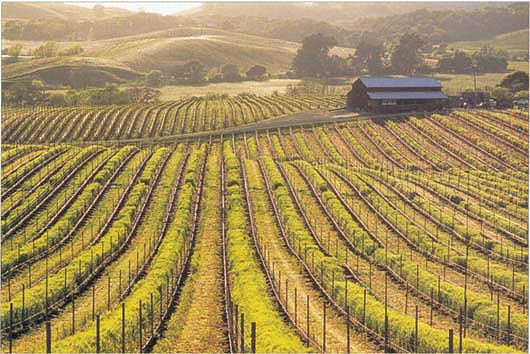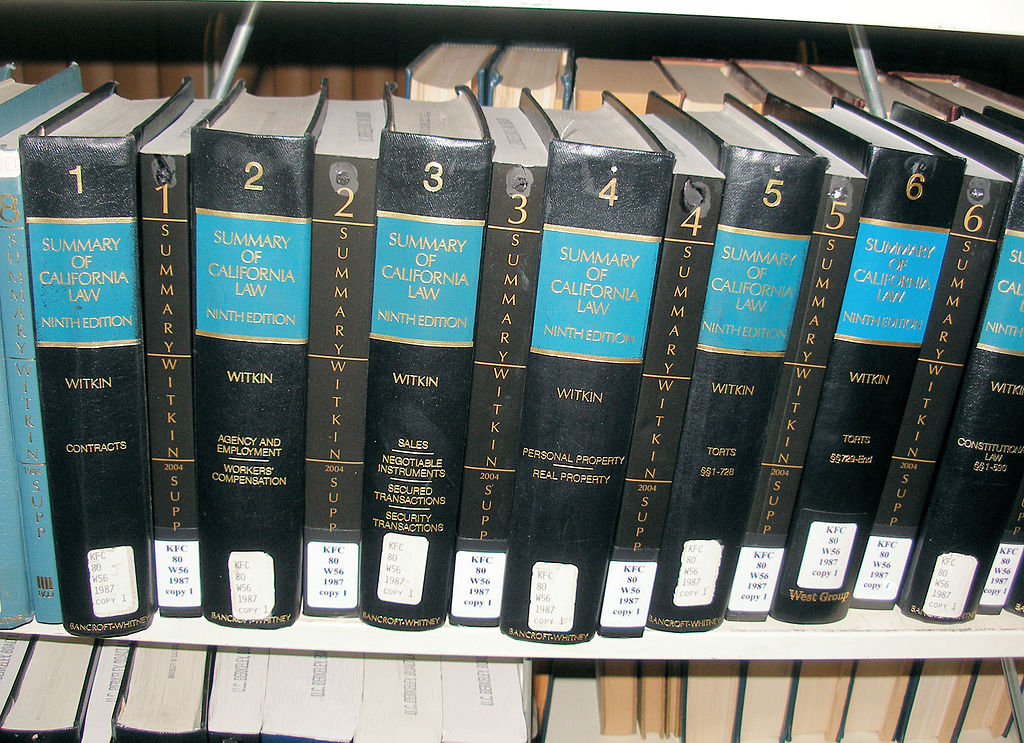
Napa Valley winery. (Photo: Univ. of California)
New Bill Would Permanently Change Winery Container Laws
AB 239 would allow winery customers to fill their own containers with wine during downturn
By Evan Symon, January 21, 2021 5:26 pm
Earlier this week, a bill that would allow winery customers to fill their own containers with wine, or for wineries to deliver wine in personal containers to customers, was introduced in the Assembly.
Assembly Bill 239, authored by Assemblymen Carlos Villapudua (D-Stockton) and Robert Rivas (D-Hollister), would allow reusable containers to be refilled at wineries and tasting rooms. While Californian breweries are currently allowed this practice with containers such as “growlers,” it is currently not allowed at wineries.

Assemblyman Villapudua and Assemblyman Rivas wrote the bill to help out wineries, who were hit especially hard in 2020 due to COVID-19, a weakened economy, and wildfires threatening many vineyards, by offering them a new form of revenue through personal container sales. Supporters also touted how personalized containers would help reduce COVID-19 spread with wine distribution and would help wineries save on materials and bottling costs. One reusable keg, which would be legal under the bill, would save 39 glass bottles, a factor that would also be more favorable for the environment.
“Taking this next step will help to expand business opportunities for family wineries, reduce consumer waste, and bring parity to our marketplace,” said Assemblyman Villapudua in a statement. “While existing law allows for breweries to sell their product in this manner, it’s time we offer the same opportunity to the winegrowers of California.”
While there has been no opposition mounted against AB 239 as of Thursday, with both Republican and Democrat legislators signing on as co-authors during the week, some have noted that it is taking advantage of a temporary container law and would try and make it permanent.
“Right now you can go into any open winery and fill up,” explained Gus Massey, a vineyard worker in Sonoma County. [The California Department of Alcoholic Beverage Control] let us begin doing that last year, and we’ve been calling to make it permanent since it’s only temporary. I know it is kind of taking advantage of the situation we’re in now with COVID and all, but it has helped us immensely.”

“With bars closed and people not exactly getting wine at restaurants or at the grocery store as much, we need ways to get more wine out. So by having people come here and fill up themselves, it’s a big help. We’ve actually saved money on shipping since the customer drives here, and we’ve noticed we’ve been saving on bottles too. And then there’s the fact that we can sell gallons at a time rather than, say, a bottle, which is roughly about a fifth of a gallon.
“It doesn’t make up for all the changes and losses, but it’s significant. California is known for wine, and this way, they can help protect the industry.”
AB 239 is expected to be brought to a committee in the coming weeks.
- Bill to Require Law Enforcement Disclosure if AI Was Used To Help Write Reports - August 7, 2025
- Gov. Newsom Files FOIA Request To ‘Expose True Cost’ Of L.A. Federal Troop Deployment for Anti-ICE Riots - August 6, 2025
- California Redistricting: How Newsom’s Plan Will Demolish Hard Fought GOP Gains - August 6, 2025





Do these buffoons even drink wine???? Another higher level for idiocy in Sacramento.
— The PlumpJack Newsom cost savings bill —
cutdown on supply costs and add an avenue to increase sales. in otherwords, stop giving out free supplies, so they pay for it plan.
That is actually slept on right.
Normally when you buy in bulk you save and when you use bulk packaging (a stainless keg, beer or wine), you save.
But no!! Same price.
Bteweries and wineries need to start giving industry pricing. After all, if I am serving beer or wine from a keg, many friends are probably with me, I am a brand ambassador at that point.
Give the damn discounts.
Customers, you demand it!